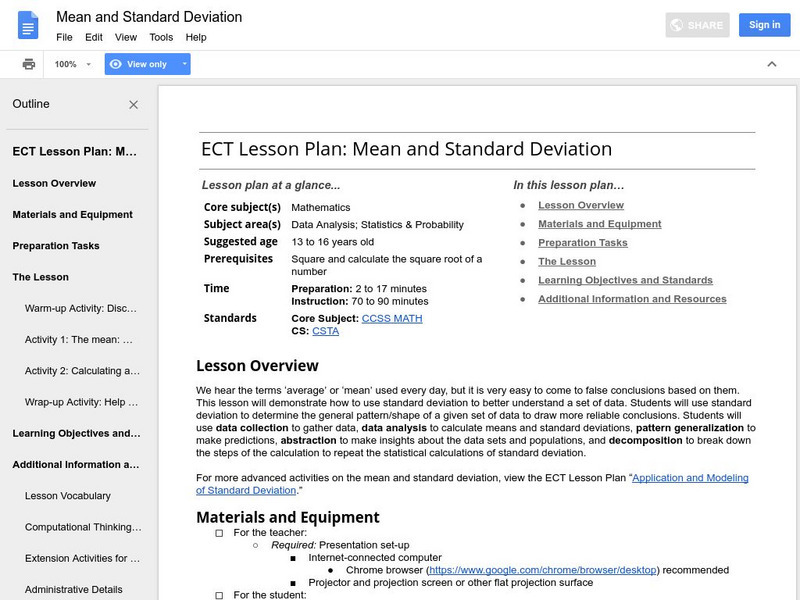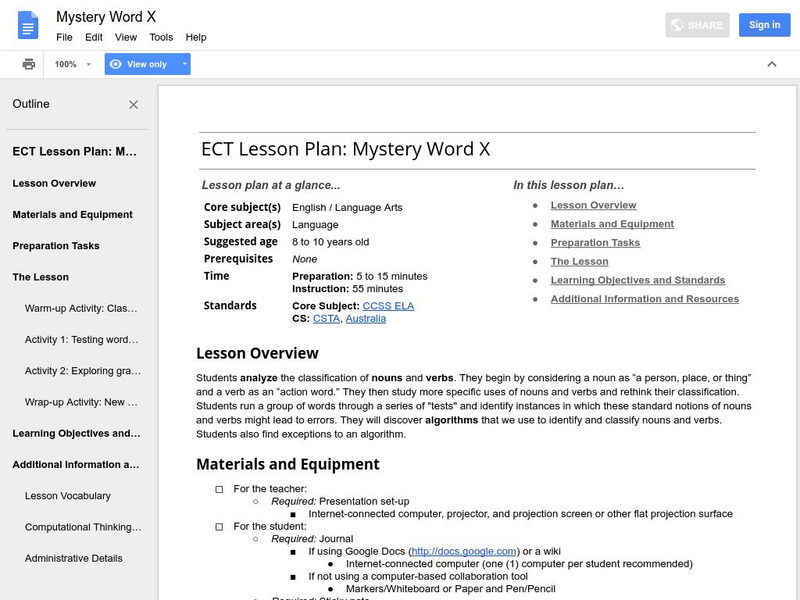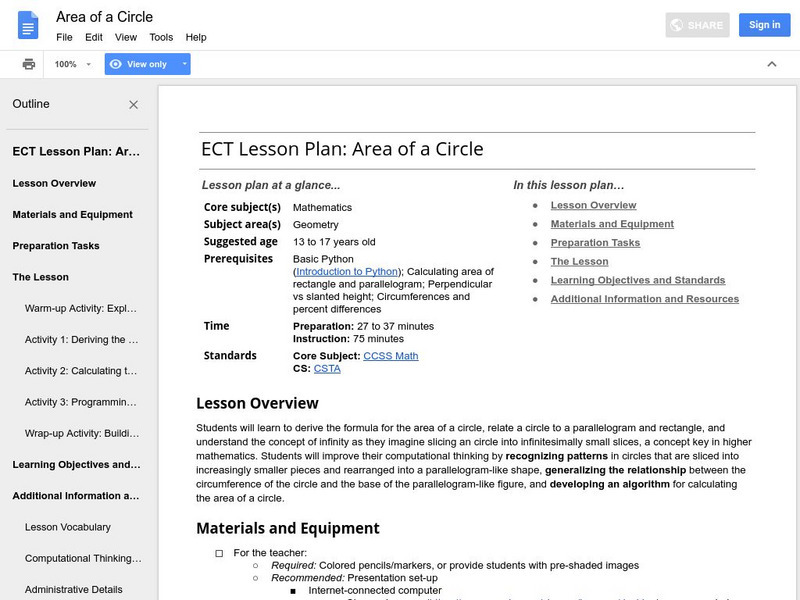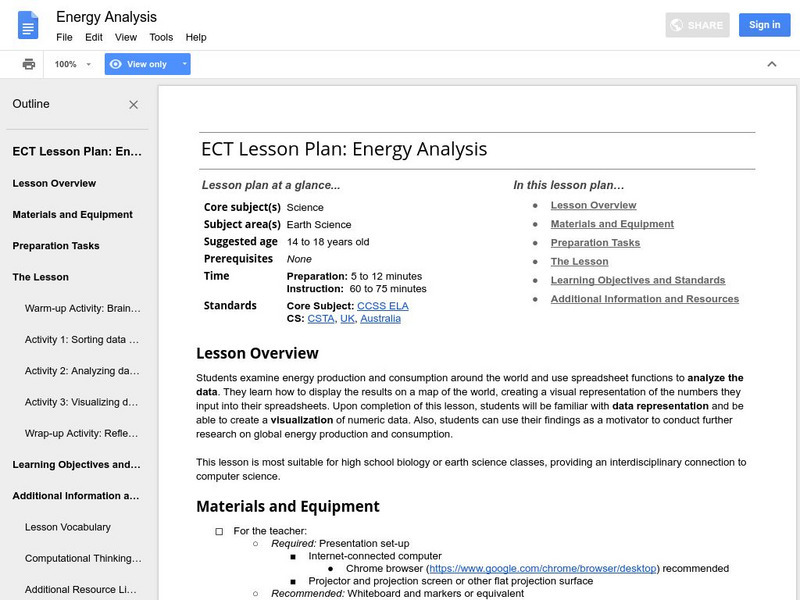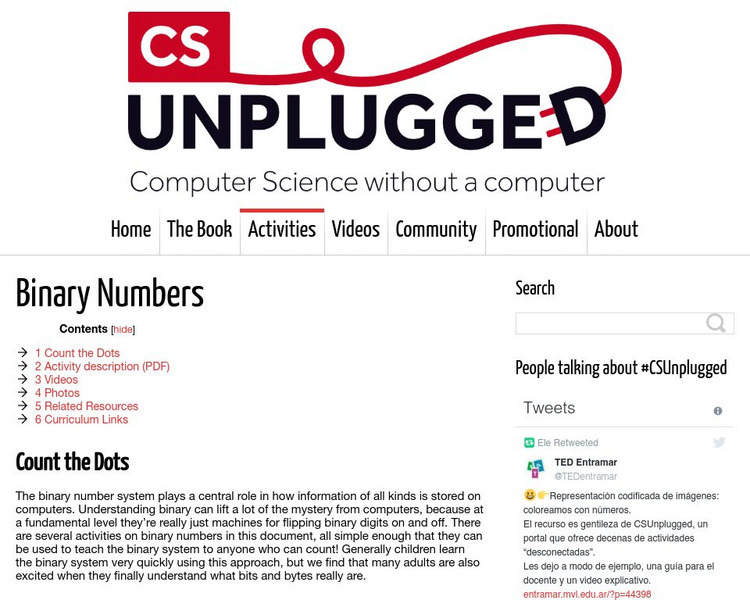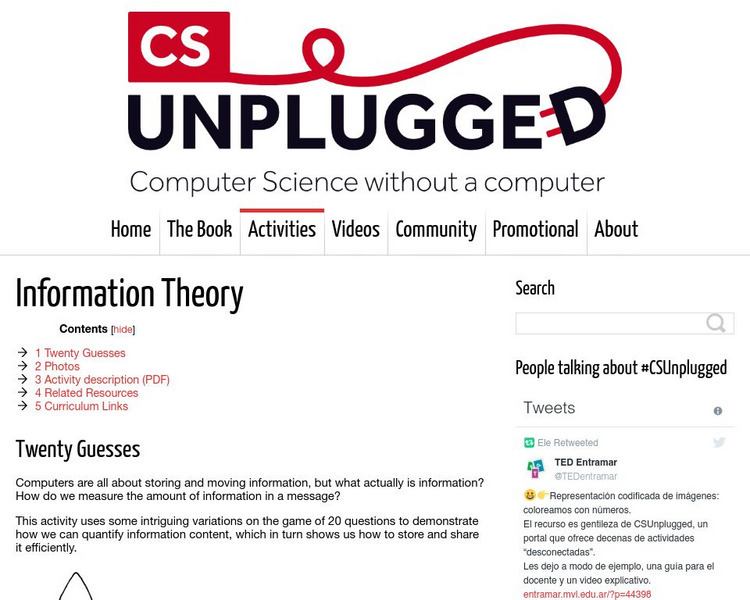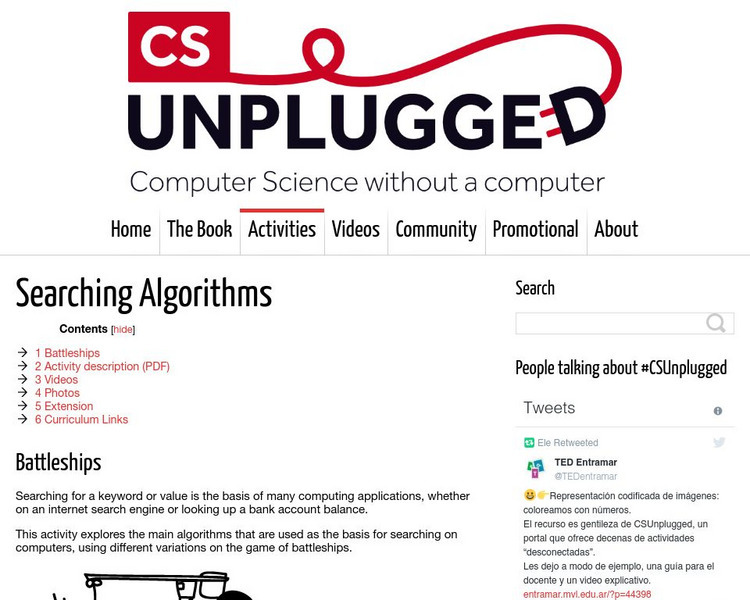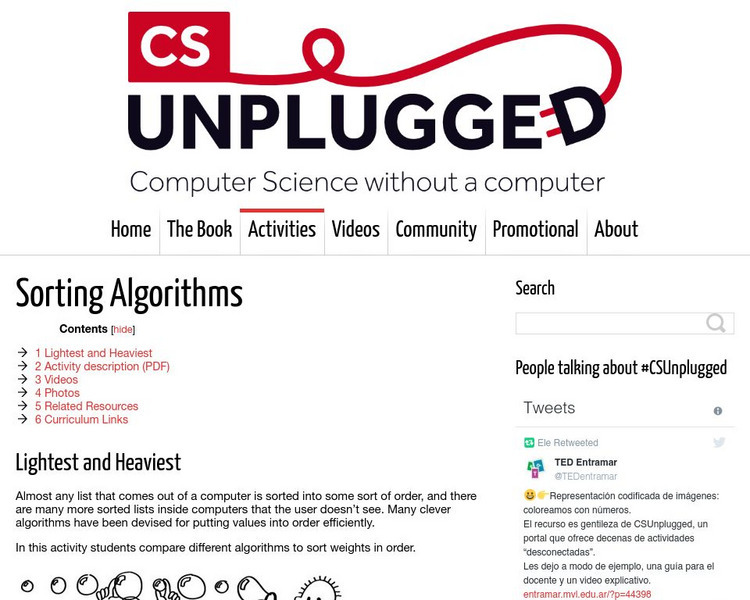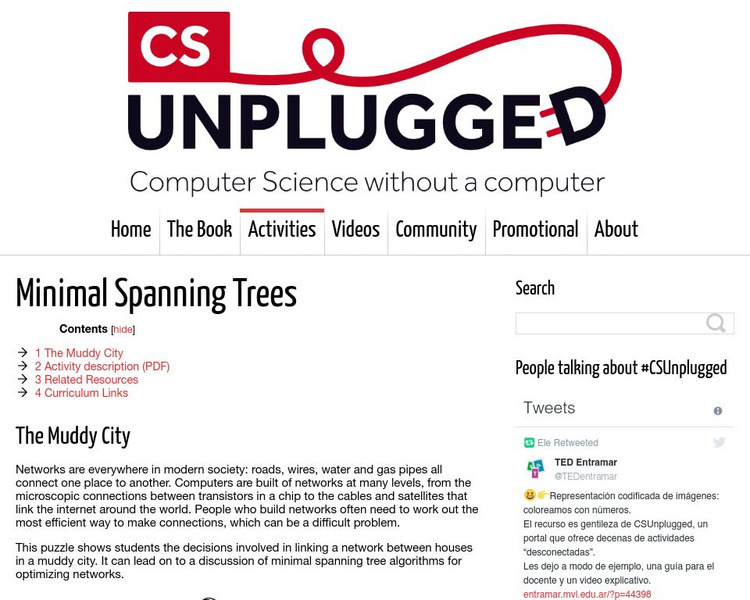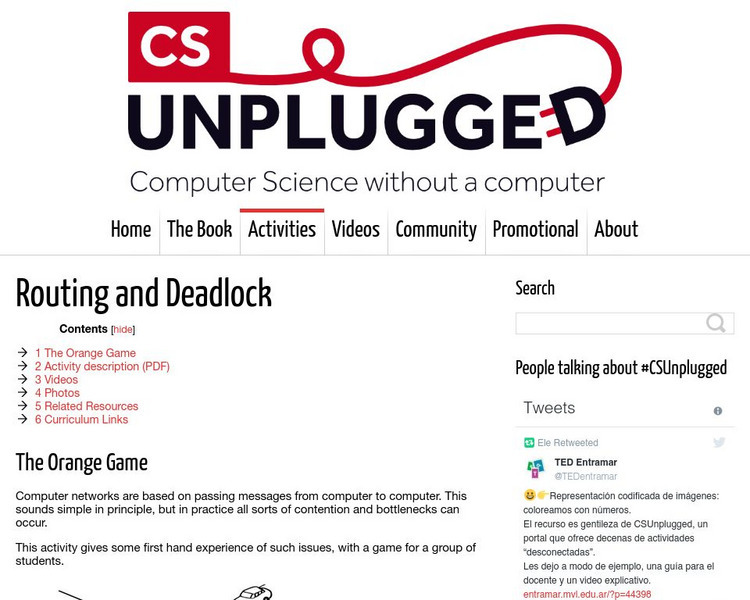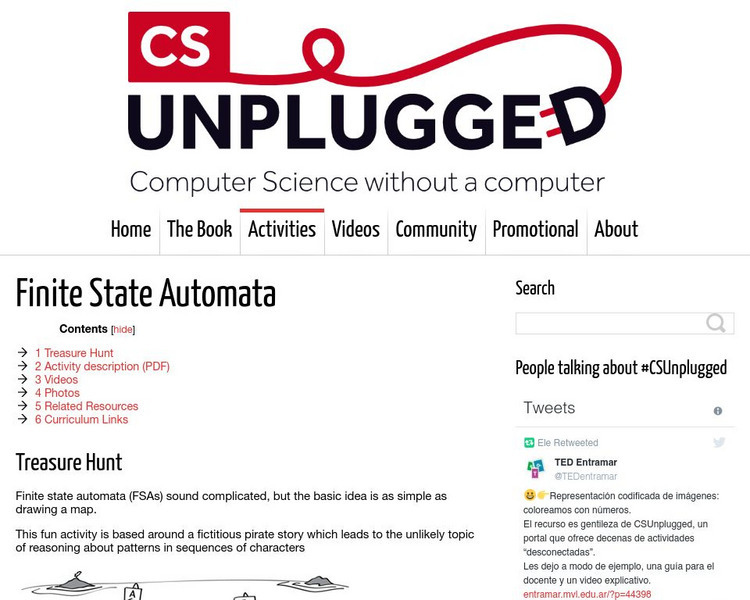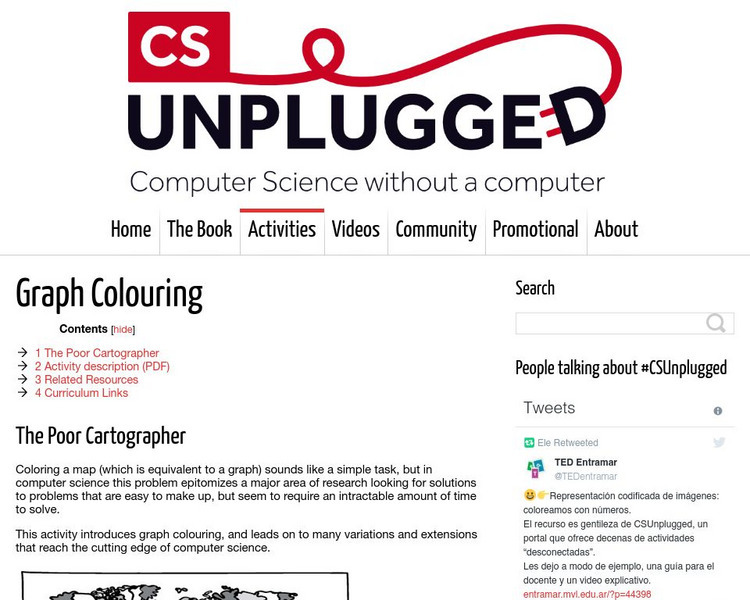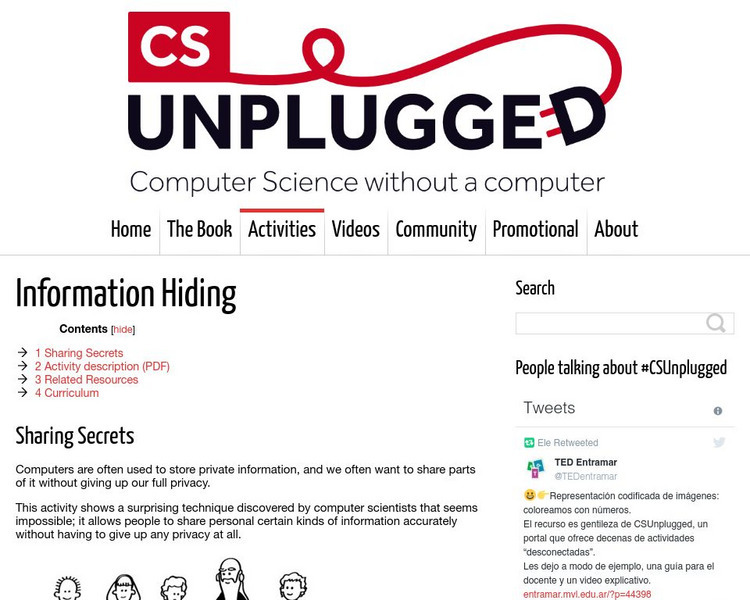Hi, what do you want to do?
Google
Google for Education: Applying Discrete and Continuous Data in a Map
Using various tools, student will be able to analyze and calculate the amount of urban open space available in their city.
Google
Google for Education: Mean and Standard Deviation
This lesson demonstrates to students how to use standard deviation to better understand a set of data. Students use standard deviation to determine the general pattern or shape of a given set of data to draw more reliable conclusions.
Google
Google for Education: Mystery Word X
An exercise for students to analyze the classification of nouns and verbs. They begin by considering nouns as a person, place, or thing, and verbs as action words. Students then study more specific uses of nouns and verbs and rethink...
Google
Google for Education: Area of a Circle
Students learn to derive the formula for the area of a circle. They learn to relate a circle to a parallelogram and rectangle while learning the concept of infinity as they imagine slicing an circle into infinitesimally small slices.
Google
Google for Education: Energy Analysis
Students collect data on energy production and consumption around the world. They input the data into a spreadsheet and use spreadsheet functions to analyze it. Finally, they upload the data into a fusion table to create a visualization.
Northwestern University
Northwestern University: Ct Stem Project: Computational Thinking: Lessons
Northwestern University frames lessons which bring computational thinking enhanced activities into STEM classrooms.
Other
Code Combat
This computer programming game allows students to learn how to write code. Learners write code in real programming languages.
Other
Exploring Computer Science: Scope and Sequence
Exploring Computer Science is one year course consisting of six, six week long units. The course was developed around a framework of both computer science content and computational practice where assignments and instruction are...
University of Canterbury
University of Canterbury: Cs Unplugged: Binary Numbers
With this lesson, educators can teach the binary system to anyone who can count. Using this approach, many adults are also excited when they finally understand what bits and bytes really are.
University of Canterbury
University of Canterbury; Cs Unplugged: Text Compression
Learn how compressed formats such as zip, gzip, or gif images are all based on a method called Ziv-Lempel coding, which turns out to be an interesting exercise in finding patterns in text.
University of Canterbury
University of Canterbury: Cs Unplugged: Information Theory
This activity uses variations on the game of 20 Questions to demonstrate how we can quantify information content, which in turn shows us how to store and share it efficiently when it comes to computer technology.
University of Canterbury
University of Canterbury: Cs Unplugged: Searching Algorithms
Explore the main algorithms that are used as the basis for keyword searching on computers, using different variations on the game of battleships.
University of Canterbury
University of Canterbury: Cs Unplugged: Sorting Algorithms
Many clever algorithms have been devised for sorting values into order efficiently. In this activity students compare different algorithms to sort weights to simulate how computers devise sorted lists.
University of Canterbury
University of Canterbury: Cs Unplugged: Sorting Networks
A student team activity that demonstrates an approach to parallel sorting, or how much computation can be done at the same time. It can be done on paper, but the lesson becomes more meaningful if the students do it on a large scale,...
University of Canterbury
University of Canterbury: Cs Unplugged: Minimal Spanning Trees
This puzzle shows students the decisions involved in linking a network between houses in a muddy city. It can lead on to a discussion of minimal spanning tree algorithms for optimizing networks.
University of Canterbury
University of Canterbury: Cs Unplugged: Routing and Deadlock
Computer networks are based on passing messages from computer to computer. This sounds simple in principle, but in practice all sorts of contention and bottlenecks can occur. This activity gives some first hand experience of such issues,...
University of Canterbury
University of Canterbury: Cs Unpluggeed: Network Protocols
Students learn what information makes up a protocol for bits of information added to messages to make sure they are sent over the internet.
University of Canterbury
University of Canterbury: Cs Unplugged: Finite State Automata
This student activity is based around a fictitious pirate story which leads to the unlikely topic of reasoning about patterns in sequences of characters. Experiencing this concretely will help lay the foundation for understanding finite...
University of Canterbury
University of Canterbury: Cs Unplugged: Programming Languages
Help build the foundation of understanding computer languages with this activity. Demonstrate some of the issues that arise when we try to give precise instructions to achieve a desired outcome.
University of Canterbury
University of Canterbury: Cs Unplugged: Graph Colouring
Introduce graph coloring, and lead learners on to many variations and extensions that reach the cutting edge of computer science.
University of Canterbury
University of Canterbury: Cs Unplugged: Dominating Sets
This activity explores the dominating set problem, and sets it up as the basis for a the public key encryption activity.
University of Canterbury
University of Canterbury: Cs Unplugged: Steiner Trees
Steiner trees are another way to approach finding efficient networks between points. This is another tough problem from computer science, converted into an activity which is easy to explain, with variations suitable for higher-level...
University of Canterbury
University of Canterbury: Cs Unplugged: Information Hiding
This surprising technique discovered by computer scientists that seems impossible allows people to share personal certain kinds of information accurately without having to give up any privacy at all.
University of Canterbury
University of Canterbury: Cs Unplugged: Cryptographic Protocols
This is another activity that achieves something that doesn't seem possible- people who don't trust each other and can't see each other are able to agree on the outcome of a random coin flip.






